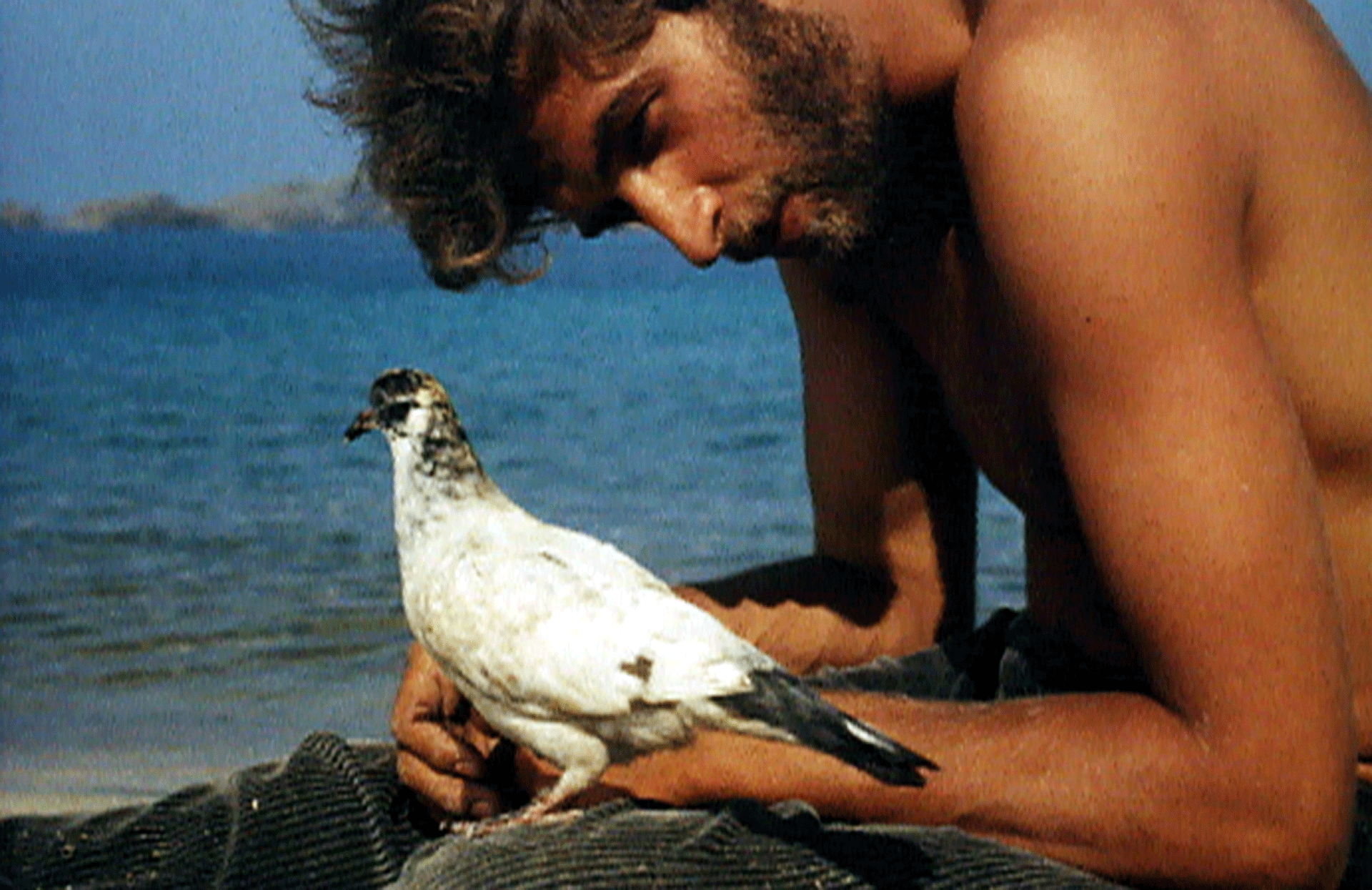
Section: Anywhere, out of the world
This utopian fable that takes place on an island in Greece, is freely inspired by Daniel Defoe's novel and speaks above all about loneliness: the immense weakness of today's man, confronted by his loneliness, is no longer that of the hero of the 18th century. Robinson Crusoe’s story is only seen as the fictional basis, which is surpassed to achieve something universal that time does not alter. The spectators are put in the condition of being interested above all in the writing of the images and not in Robinson’s story, since in general they know it.
Jean Daniel Pollet
Jean Daniel Pollet started filmmaking by shooting small documentaries on animals in 16mm. It is in 1958, while he was doing his military service in the audio visual department of a military base, that he stole some raw film stock, to make “Pourvu qu’on ait l’ivresse” [“As Long as You Get Drunk...’”] with Claude Melki, a strange character that was like a Parisian Buster Keaton. This film was praised by the French New Wave. Pollet became then the assistant of Julien Duvivier, but didn’t enjoy the experience and rejected the “official” cinema. Many of his films are located in the Mediterranean and Greece, which he considered being his inner place, an epicenter.
About the Film
According to the filmmaker: “I have always oscillated in my films between confinement and escape, the one constantly leading to the other. Tobias Engel, the actor, went without food and drink for almost four days. At that moment the film really started for him, as for me. Insofar as the character cannot escape his fantasies, they proliferate and become dramatized. The disintegration of the personality is inevitable. I saw the character in a much more external way as an element of the landscape. I really wanted the character to be almost reduced to an object. And its modifications are seen from the outside, as one sees the constant change of colors of the sea which surrounds it”. “Men, animals with words, we are the hostages of the silent world”, this sentence by the French poet Francis Ponge influenced Jean-Daniel Pollet who considered that everyone has an own inner land.
- Jean Daniel Pollet, interview, “La Terre intérieure [Τhe Inner Land]", Cahiers du Cinéma n° 204, 1968
- Jean Daniel Pollet, “Le Complexe de Robinson [Robinson’s Complex]”, Cahiers du cinéma n°509, 1997


